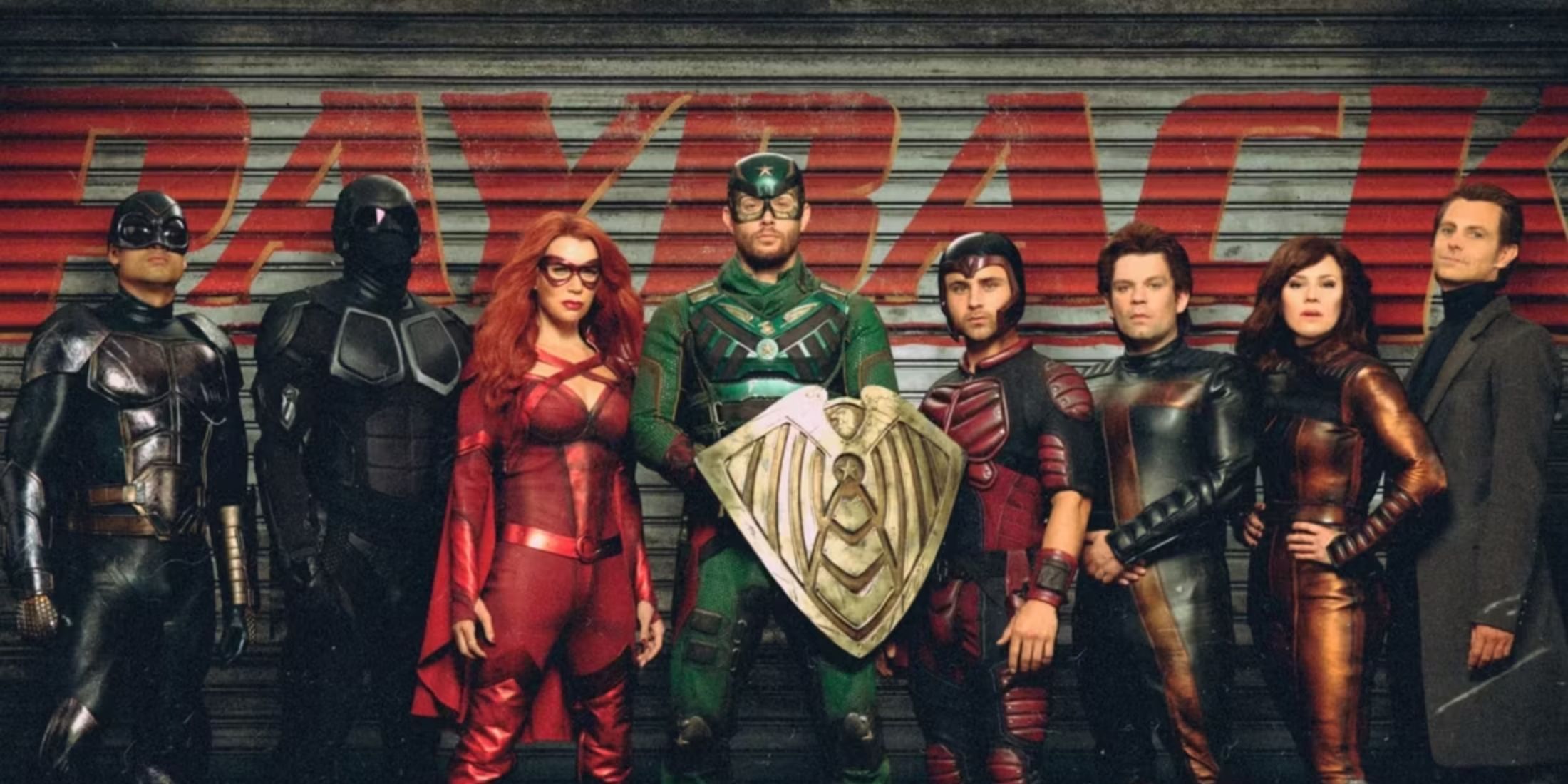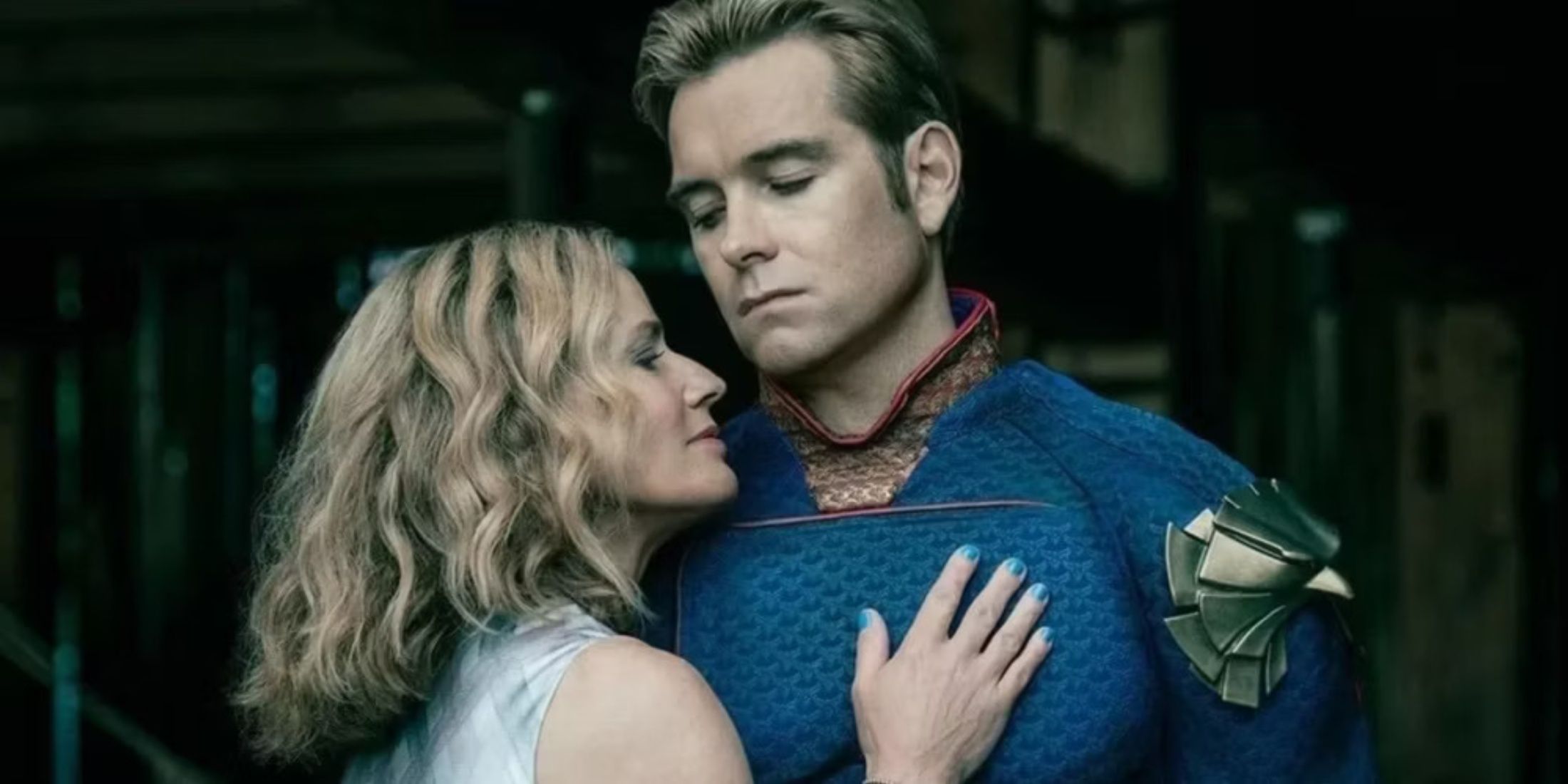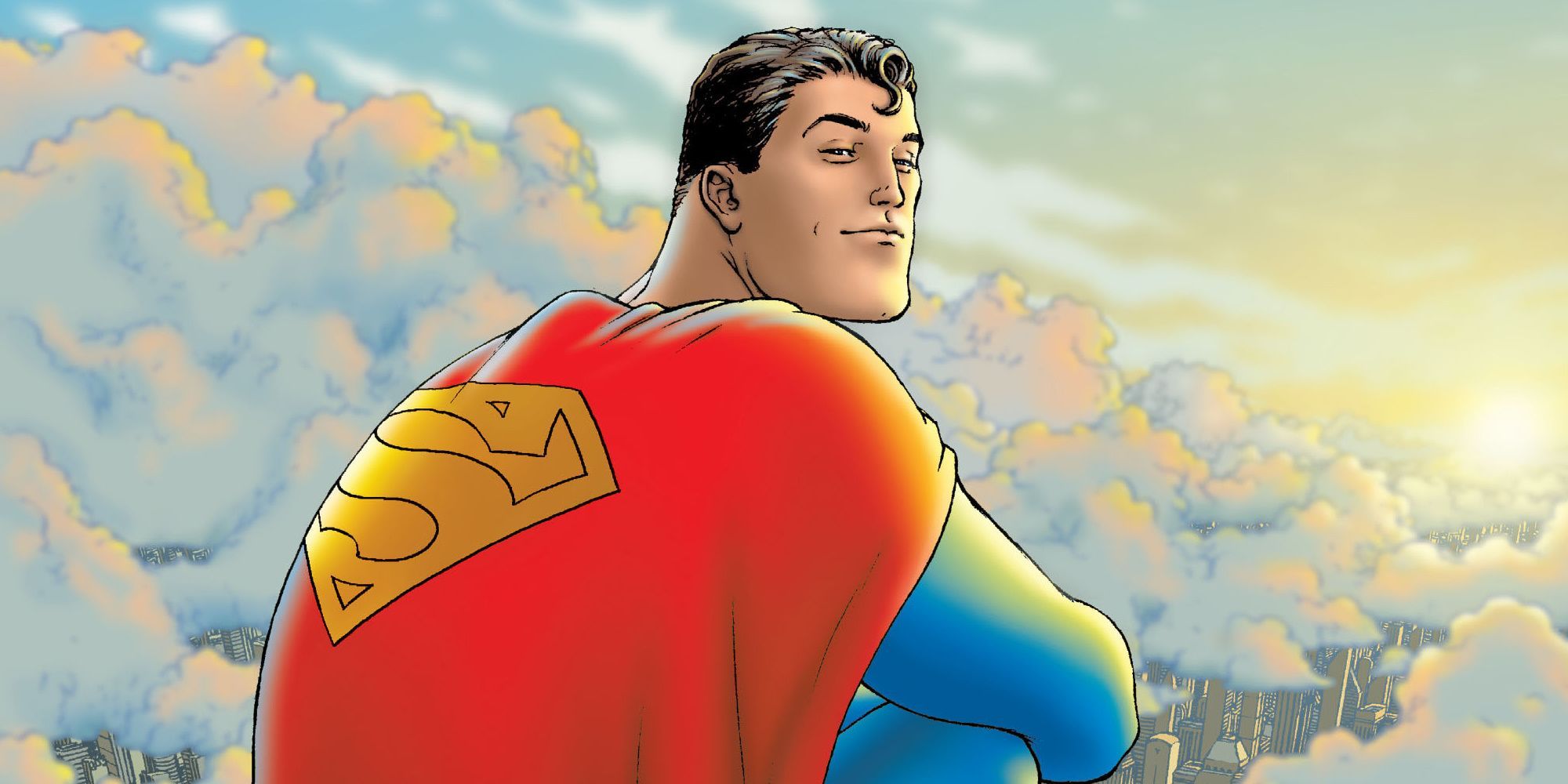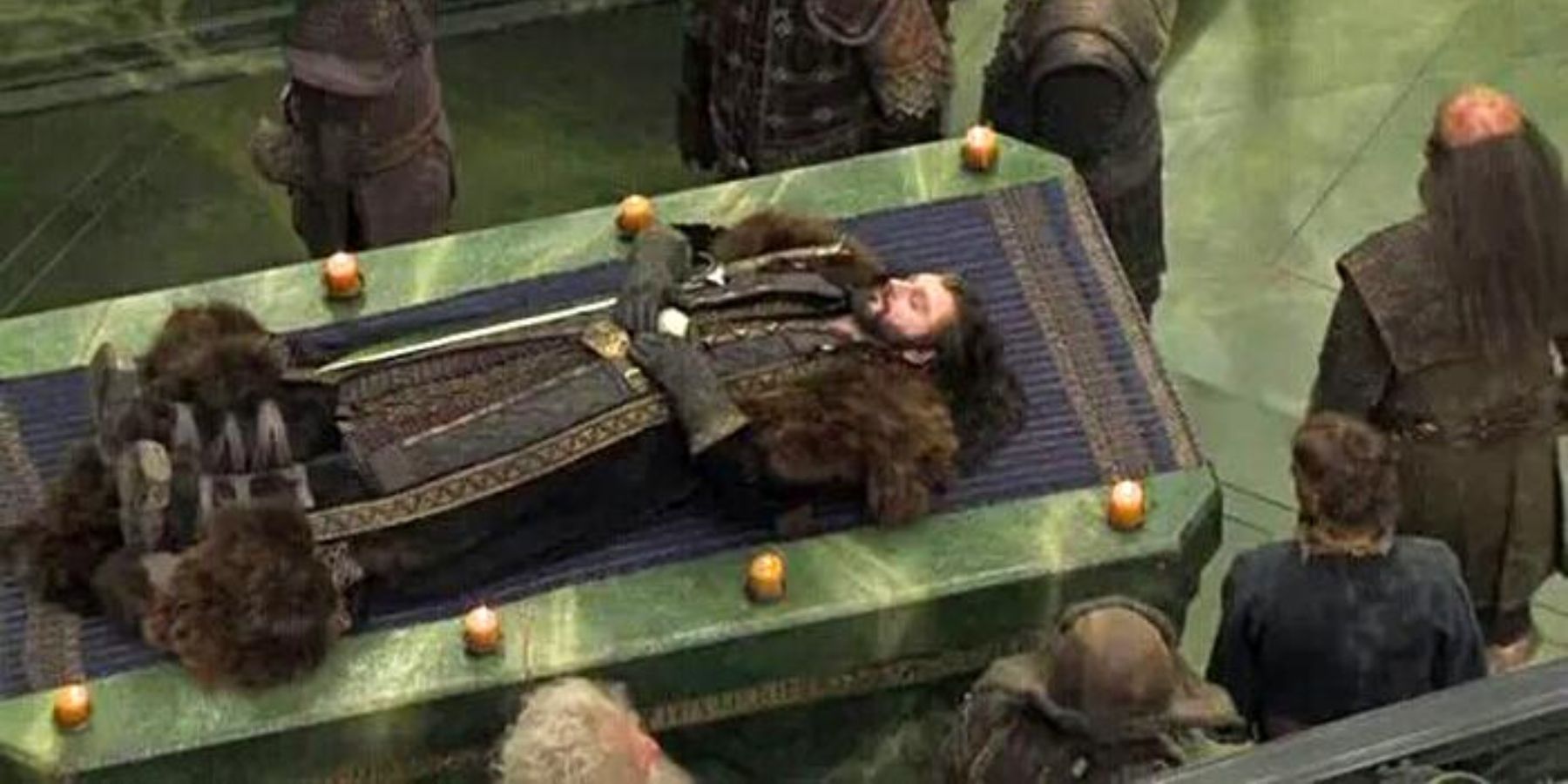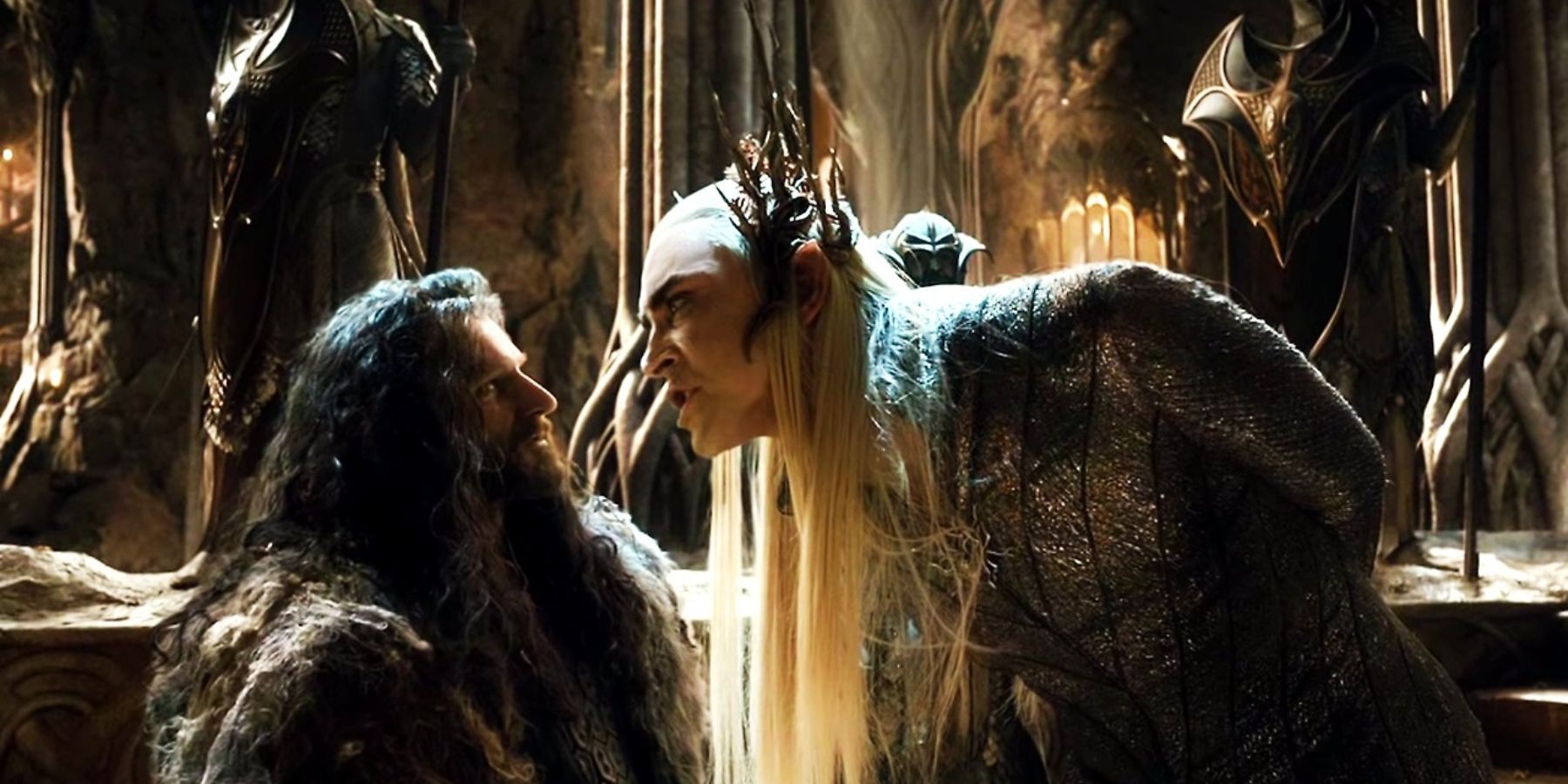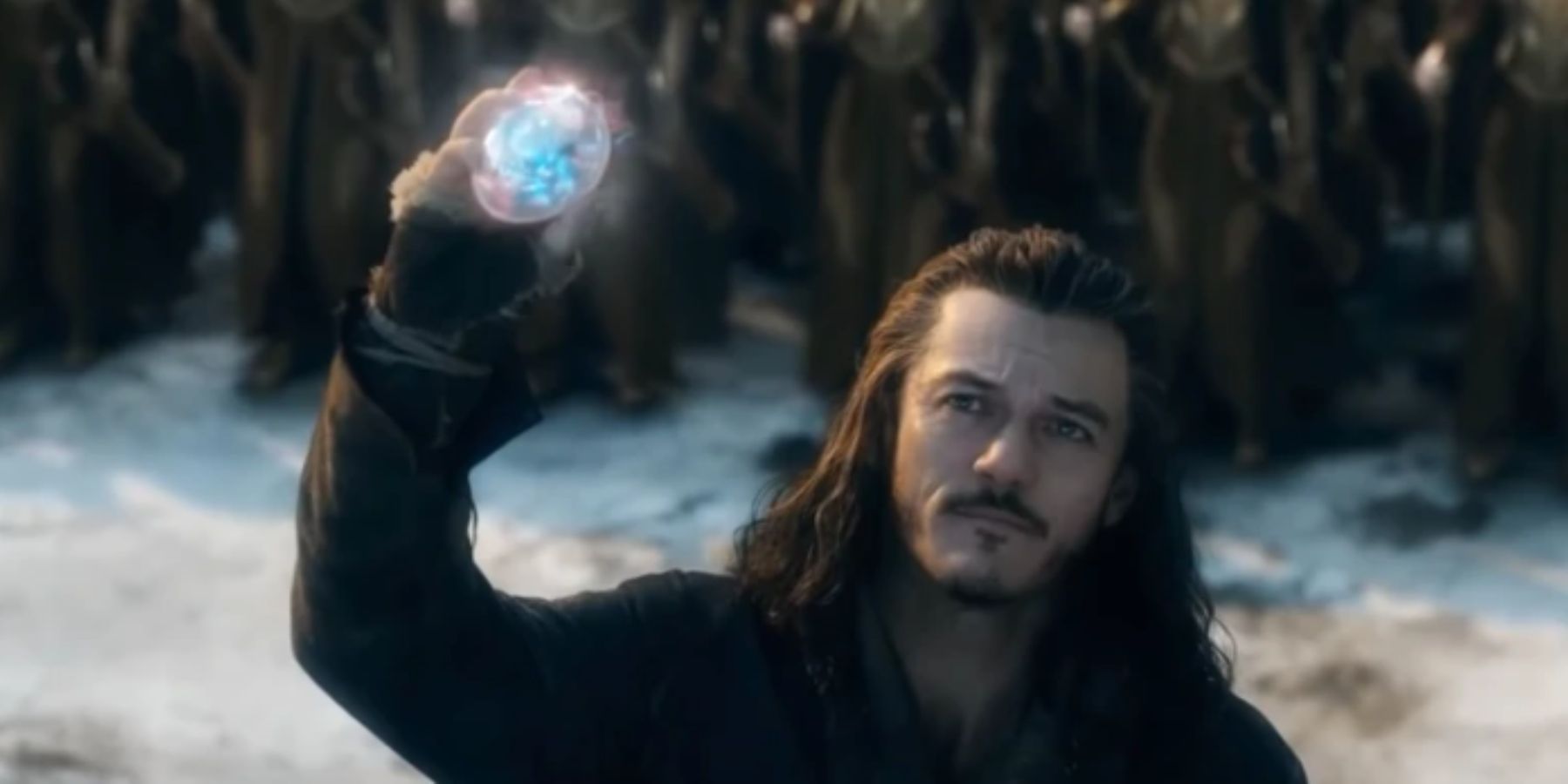At the start of Bilbo’s journey to the Misty Mountains, Gandalf warns the hobbit that he cannot promise that Bilbo will return to The Shire alive by the end and that if he does, he will not be the same as he was. This couldn’t prove to be more true, as Bilbo survives some of the most harrowing experiences of any of the characters in either The Hobbit or the Lord of the Rings. Along the adventure, Bilbo is nearly roasted alive by trolls, nearly squashed to death by battling stone giants, nearly skewered by goblins, nearly eaten by Gollum, and nearly killed in the myriad of battles that he faces for survival.
But arguably one of the most difficult experiences that he faces in that long year is watching Thorin, a friend whom he greatly admires and cares for, succumb to dragon-sickness. Bilbo experiences, more than any of the others in the company, the way that Thorin slowly starts to lose his mind to greed and gold-lust. And the more paranoid Thorin gets, the crueler he becomes to those around him, his own kin, and the ones that they have promised to help. That is when the famous line “I will not part with a single coin. Not one” comes in, and Bilbo realizes that unless he does something, it will be too late for Thorin to ever come back from the brink.
So Bilbo takes the Arkenstone and offers it to Bard of Laketown, and Thranduil of Mirkwood. And both of these characters hold no love for Thorin, if anything both of them despise him, because he has denied them something that is honorably theirs. For Thranduil, it is the White Gems of Lasgalen, the precious necklace that he made for his wife before she died, a reminder of his love for her and a very sentimental keepsake that is trapped under the mountain. And for Bard it is a share in the gold so that he can help to rebuild his town that was destroyed by the coming of Smaug, and so that he can afford to feed his sick and starving people who have been cast out of their homes. They agree to Bilbo’s truce when he offers up the Arkenstone, but even then begrudgingly after all the cruelty that Thorin has shown them. So why then do they go to pay their respects to Thorin after his death in the Battle of the Five Armies?
‘They buried Thorin deep beneath the mountain, and Bard laid the Arkenstone upon his breast. “There let it lie till the Mountain falls” he said “May it bring good fortune to all his folk that dwell here after!”' It is clear from this that Bard no longer bears the dwarf any ill will, in fact he wishes a good future not only for Thorin in his passing, but also for all the descendants who may come afterwards, which sounds much more like the sentiment that would be offered to a friend than to an enemy.
Indeed, so does the offering of Thranduil: ‘Upon his tomb the Elvenking then laid orchrist, the elvish sword that had been taken from Thorin in captivity. It is said in songs that it gleamed ever in the dark if foes approached, and the fortress of the dwarves could not be taken by surprise.’ In giving back the elven weapon that he confiscated whilst Thorin and the other dwarves were in his captivity, Thranduil is showing the ultimate sign of respect and kinship towards his fallen comrade, a sign to all that Thorin has died honorably, and has earned the right to such a mighty sword. In doing so, Thranduil also helps to protect the future generations of Erebor, and maintains a strong bond with both them and the men of Lake Town ever after.
Why this is difficult to say, but it may perhaps be attributed to both Bard and Thranduil recognizing their own pride and their own faults within the folly of Thorin, and realizing that in slightly different circumstances it would have been them that were laid to rest in a tomb rather than him. Thorin does come out of his dragon sickness, and he does fight bravely and valiantly to defend all the people that he hurt with his cruelty, and in doing so, he has earned back their respect.
The promises that were made to both Bard and Thranduil are eventually kept, as they are given what was rightfully theirs by Dain, who takes over as king under the mountain, and this helps to alleviate the bitterness of the battle. They have each of them lost people that they loved and cared about, for Thranduil it is the horror of seeing so many of his fair elves fall, and for Bard it was watching many of his townspeople be burned alive in the fire of Smaug. Thus, they only feel the grief of the dwarves at the loss of Thorin, Fili and Kili more keenly, and wish to be a part of rebuilding a better world so that all can move on from the trauma that happened in the battle.

